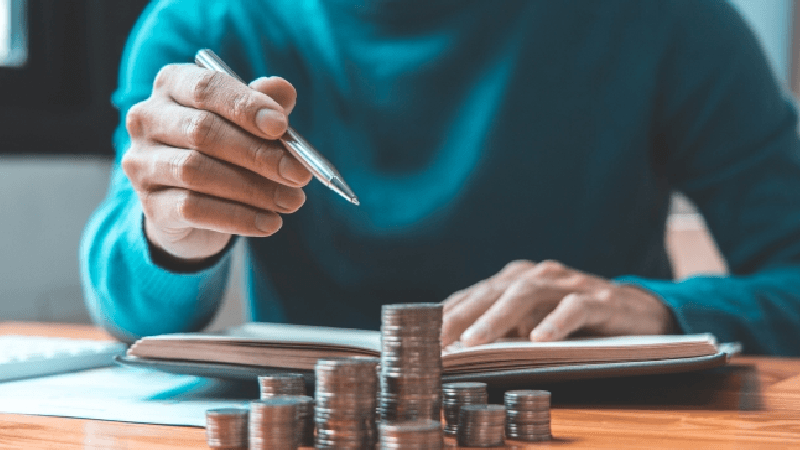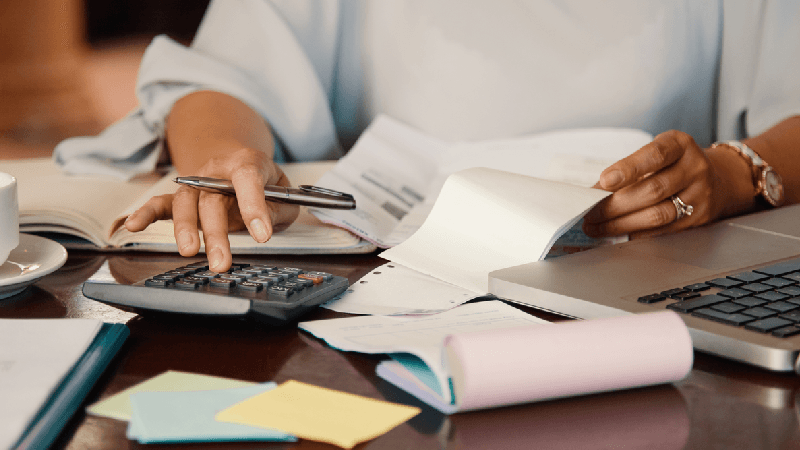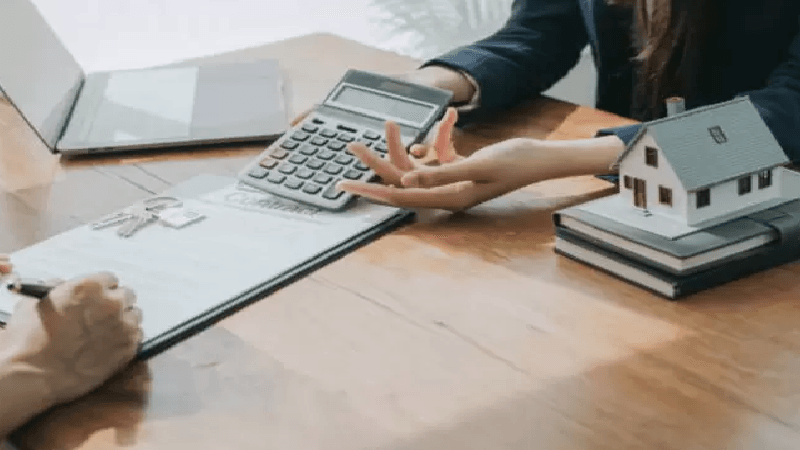
Planning an effective budget is essential to have control over your personal finances and achieve your financial goals. Many times, we get carried away by our buying impulses and spend more than we should, which can lead to debt and lack of financial stability.
In this article, we will present you with some practical tips so you can plan an effective budget and start taking control of your personal finances.
Why is it important to have a budget?
Having a budget is crucial to keep your personal finances in order. It helps you to:
- Control your spending and avoid excessive debt.
- Plan ahead and be prepared for unforeseen expenses.
Adjust your spending habits to meet your long-term financial goals
Make informed and strategic financial decisions
Maintain good financial health and increase your chances of achieving financial stability.
In short, having a budget allows you to be in control of your money instead of your money controlling you.
Steps to creating an effective budget
- Gather information about your income and expenses
- Set clear financial goals
- Categorize your expenses and prioritize the most important ones
- Set spending limits for each category
- Regularly monitor your income and expenses to adjust your budget as needed
- Be sure to save a portion of your income each month
- Be realistic in your budget and make adjustments when necessary.
Calculate your monthly income
The first thing you should do to plan an effective budget is to calculate your monthly income. This includes any money you receive on a regular basis such as salary, income from freelance or other side jobs, government benefits, pensions, etc.
Be sure to include all of your income and make sure it is consistent each month. If you receive irregular or variable payments, try to average them to get a clear picture of your monthly income.
Once you have this information, you can begin to divide your income between essential and non-essential expenses to help you plan your budget effectively.
Identify your fixed monthly expenses
In order to plan your budget effectively, it is essential to know what your fixed monthly expenses are. These are those that you have to pay every month, without exception. Some examples might be:
- Rent or mortgage
- Utilities (electricity, water, gas, internet)
- Transportation (gasoline or public transportation)
- Car insurance
- Loan or credit card payments
It is important that you make a detailed list of all these expenses and add them up to know how much money you need to cover them each month. This way you will be able to know what is your minimum income necessary to live without worries.
Identify your variable and discretionary expenses
Variable expenses are those that change from month to month, such as food, transportation and entertainment expenses. Therefore, it is important to identify them in order to plan your budget effectively.
On the other hand, discretionary expenses are those that we can decide whether or not to spend on, such as impulse purchases or dining out. It is important to be aware of these expenses and try to reduce them so as not to exceed the budget.
Once these expenses have been identified, it is advisable to allocate a fixed amount for each of them in the monthly budget and try to respect it as much as possible.
Reduce unnecessary expenses
Review all your monthly expenses and eliminate those that are not necessary. You can cancel subscriptions you don't use, reduce spending on entertainment or eating out, and look for more economical options for your daily needs.
It is also important to avoid impulse purchases and compare prices before making a purchase. Ask yourself if you really need that product or service before spending your money on it.
Reducing your unnecessary expenses will help you save more money and have a more effective budget in the long run.
Set long-term financial goals
Once you have established a monthly budget, it is important that you also plan for the long term. This means setting long-term financial goals and working to achieve them.
Do you want to save for your children's college education, buy a house or a car, or plan to retire early?
Setting long-term financial goals will help you have a clear vision of what you want to achieve and motivate you to make responsible and effective financial decisions.
Once you've set your goals, be sure to regularly track your progress and adjust your budget accordingly. It may also be helpful to seek the advice of financial professionals to help you reach your goals.
Tools to help you plan your budget
Once you are clear on how to make an effective budget for your personal finances, it is important to have the right tools to carry it out. Here are some options:
- Mobile applications: there are several applications on the market that allow you to keep a detailed record of your income and expenses, as well as set goals and receive alerts when you get close to your budget limit. Some of the most popular are Mint, Toshl and Money Lover.
- Spreadsheets: If you prefer a more traditional option, you can use spreadsheets such as Excel or Google Sheets to create your budget. There are predefined templates that you can download and customize according to your needs.
- Online tools: you can also use online tools such as Budgettracker or You Need A Budget (YNAB) to plan your budget and track your expenses and income in detail.
- Envelope method: this technique consists of allocating a fixed amount of money to different categories (food, transportation, entertainment, etc.) and keeping each amount in separate envelopes. This way, you can easily visualize how much money you have available in each category and avoid overspending.
Whichever tool you choose, remember to regularly review your expenses and income to adjust your budget as needed. With a little planning and discipline, you will be able to keep your personal finances under control!
Excel spreadsheets or Google Sheets
A spreadsheet is a very useful tool for planning and keeping accurate track of your personal finances. You can use an Excel spreadsheet or Google Sheets to create a monthly budget.
In the spreadsheet, you can create different categories for your expenses such as food, transportation, entertainment, etc. Then, assign a monthly budget to each category and record your daily expenses in the spreadsheet. This way, you will be able to clearly see how much you have spent in each category and adjust your budget accordingly.
An additional advantage of spreadsheets is that they allow you to do automatic calculations such as addition and subtraction, which saves you time and reduces the possibility of errors.
Budget management applications
There are many technology tools that can help you plan and control your personal finances. Some popular apps include:
- Mint: This free app allows you to link your bank accounts, credit cards and investments to get an overview of your finances in one place. You can also set goals and receive personalized alerts.
- You Need a Budget: This paid app uses the "zero-based budgeting" method to help you allocate every dollar you earn to a specific category. It also offers courses and educational tools to improve your financial literacy.
- PocketGuard: This free app shows a real-time overview of your finances, including your available balance and expected expenses. It also offers personalized recommendations for saving money and reducing expenses.
- Wally: This free app is simple and easy to use, making it a good choice for beginners in budget management. It allows you to track your daily expenses and set long-term financial goals.
Choosing the right application will depend on your personal needs and preferences. The important thing is to find a tool that helps you stay in control of your money and allows you to reach your financial goals.
Maintaining an effective long-term budget
Once you've established an effective budget for your personal finances, sticking to it over the long term is the key to financial success. Here are some tips for keeping your budget in good shape:
- Review and adjust your budget regularly: As your income and expenses change, it is important to review and adjust your budget to reflect these changes.
- Set realistic financial goals: Having clear financial goals will help you stay focused and committed to your budget over the long term.
- Keep detailed records of your income and expenses: Keeping an accurate record of your income and expenses will allow you to identify patterns and make necessary adjustments to your budget.
- Save a portion of your income: It is important to include savings in your long-term budget. Saving regularly can help you reach important financial goals in the future.
- Practice financial discipline: Staying within your budget will require financial discipline. Avoid unnecessary spending and make smart purchases.
Maintaining an effective long-term budget won't always be easy, but with determination and discipline, you can achieve lasting financial stability.
Review and adjust your budget regularly
For your budget to be effective, you need to review and adjust your expenses and income on a regular basis. We recommend doing a review at least once a month.
Analyze your expenses and see if you are meeting the goals you have set for yourself. If you find that you are spending too much in a particular category, try to cut back in that area or look for ways to reduce costs.
It's also important to keep track of your income and make sure it's consistent with what you expect. If you notice fluctuations in your income, consider adjusting your budget accordingly.
Remember that it is not necessary to be inflexible with your budget, but rather see it as a guide to help you make financial decisions. Reviewing and adjusting it regularly will allow you to adapt it to your changing needs and ensure that you are on track to meet your financial goals.
Keep track of your spending and review your financial habits.
Keeping a detailed record of all your expenses is essential to have a realistic picture of your personal finances. You can do it in a notebook, a spreadsheet or a mobile application specialized in finances.
This way, you will have a clear idea of what you are spending your money on and identify those unnecessary expenses that you could reduce or eliminate. It will also help you set savings goals and plan your monthly budget.
In addition, reviewing your financial habits is important to detect patterns that may be negatively affecting your personal finances. Do you buy a lot on impulse? Do you prefer to spend on experiences instead of saving for the future? Identify these habits and work on modifying them for better long-term financial health.
Make adjustments if necessary to meet your long-term financial goals.
Once you've established your budget and long-term financial goals, it's important to periodically review your spending and income to make sure you're on track. If you find that you're spending more than you earn or that you're not saving enough to reach your goals, you'll need to make some adjustments to your budget.
These adjustments may involve cutting some unnecessary expenses, looking for ways to increase your income, or even rethinking your financial goals if you realize they are too ambitious or unrealistic. Remember that the budget is a dynamic tool and is designed to adapt to your changing needs and circumstances.






